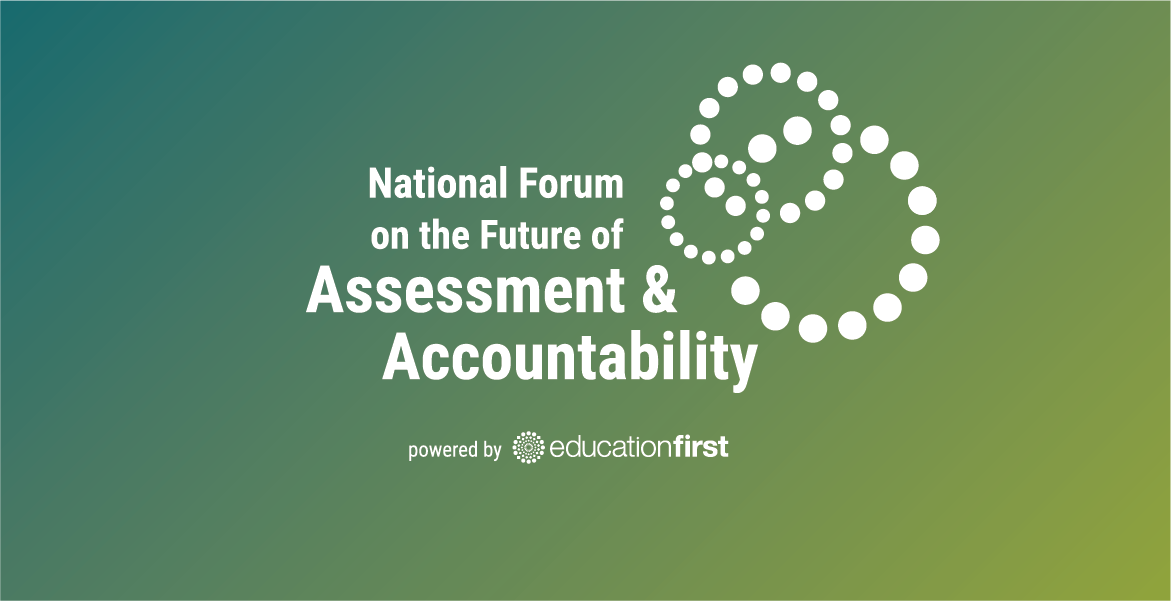
Education First convened the first National Forum on the Future of Assessment and Accountability in February 2025, bringing together more than 300 individuals representing school and district leaders from 30 states and 72 national think tanks, foundations, technical assistance and advocacy organizations, psychometricians and test developers and research organizations working to improve systems of assessment and accountability across the country.
It is time we come together and bridge the divide. Education First is launching a National Forum on the Future of Assessment and Accountability. This cross-disciplinary forum will bring leaders together across levels of the K12 system and across a range of perspectives to engage in dialogue grounded in leading edge research to drive change and innovation in policy and practice.
Education leaders and organizations across the field are making meaningful progress to advance new ideas, tools, research and policy to improve systems of assessment and accountability. They are learning a ton in the process, but there is limited space where state and district leaders, advocates, developers, technical assistance providers and community organizations come together to learn from each other, plan and collaborate across perspectives.
The assessment and accountability field is fragmented. Leaders working on issues related to assessment and accountability are siloed by perspective, by roles and entry points to the field, by discipline and from evolutions in technology. Advancements in research and development are rarely implemented with fidelity across classrooms in America and often face barriers because of incoherence with systems of teaching, learning and talent. We can do better.
The following steering committee members will advise on the learning agenda for the event, help with evaluation and selection of session proposals and support advancing dialogue across diverse and interdisciplinary perspectives.
| Member | Title | Org |
| Fen Chou | Director of Assessment and Accountability | Council of Chief State School Officers |
| Nathan Dadey | Senior Associate | National Center for the Improvement of Educational Assessment |
| Monica Gant | Associate Secretary, Academic Support | Delaware Department of Education |
| Michelle Odemwingie | Chief Executive Officer | Achievement Network (ANet) |
| Michelle Oliva | Co-Founder and Director | EduDream |
| Lillian Pace | Vice President of Policy and Strategic Advancement | KnowledgeWorks |
| Nicholas Munyan-Penney | Assistant Director of P 12 Policy | Ed Trust |
| Jennifer Randall | Founding President | Center for Measurement Justice |
| Iris Tian | Deputy Commissioner, Office of Analytics, Assessment, and Reporting | Texas Education Agency |
| Arthur VanderVeen | Chief Executive Officer | New Meridian |
